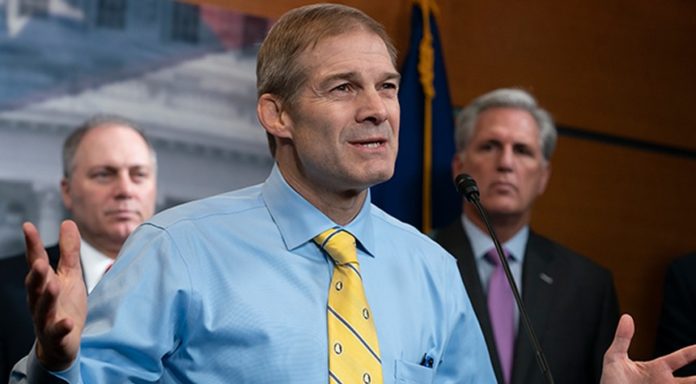Eight days remain before Republicans take control of the House of Representatives. It looks like the fight for the speaker’s throne is still on. Kevin McCarthy (Republican-California), the current minority leader and official candidate for the GOP’s speaker, is currently facing opposition from the right side of his party. A few House Freedom Caucus members have publicly expressed their disapproval. Andy Biggs (R.AZ), who challenged McCarthy but lost to the Republican caucus’ vote for their candidate last month. He had written earlier this month that he intends to challenge McCarthy again when the full chamber votes in January for its new speaker.
All I want for Christmas is @Jim_Jordan to realize he should be Speaker of the House!
— Matt Gaetz (@mattgaetz) December 24, 2022
Matt Gaetz (R, FL) was previously believed to have been in alliance with Biggs against McCarthy. But he took to Twitter and said, “All that I want for Christmas, is Jim Jordan to realize that he should be Speaker.”
It is unclear if Gaetz was trying further to muddy the waters for the speaker’s race, or if he is really encouraging a run of Jordan, who was the first chairman of the House Freedom Caucus and is well-liked by the conservative grassroots. Jordan is currently preparing for his new position as chairman of the House Judiciary Committee. He has not expressed a desire to become a speaker but has endorsed McCarthy. Jordan also urged unity within his party in fear that moderate Republicans might join the opposition party and make a Democrat their new speaker.
It’s a numbers game for Kevin McCarthy at this point; Republicans will hold a razor-thin 221-213 majority over Democrats (there’s a special election taking place in Virginia to replace the late Representative A. Donald McEachin) in the new Congress. McCarthy needs 218 votes to become the next speaker but only received 188 votes when Republicans nominated him for the position, with Biggs garnering 31 votes. McCarthy will presumably pick up most of Biggs’ votes, but then there are those five members — Biggs himself, along with Gaetz, Ralph Norman (R-SC), Matt Rosendale (R-MT), and Bob Good (R-VA.) — who are vocally against McCarthy, with a few other members refusing to say publicly whom they are supporting.
Kevin McCarthy will likely spend the next few days gaining support and making concessions in order to get the votes he needs for next week’s contest. The roll call vote will continue until one candidate reaches the required votes. The Congressional Research Service states that roll calls are repeated until there is a winner.
If no candidate receives the requisite majority of votes cast, the roll call is repeated. No restrictions are imposed on who may receive votes in the subsequent ballots. (For instance, no candidate is eliminated based on receiving the fewest votes in the floor election, and a Member’s vote is not limited to individuals who received votes in previous ballots.)
Matt Gaetz might have had this in mind when he put Jim Jordan forward to be a candidate. The rules clearly allow for an unknown candidate to move for 218. Although Jordan is unlikely to run, what about Steve Scalise, the current deputy of McCarthy (R-LA)? According to the Washington Times, some Republican lawmakers warned Scalise that he should be ready to take over if McCarthy fails to secure a simple majority in the House when both parties vote on an opening day for the 118th Congress.
It seems that Scalise’s speakership appeals to McCarthy’s opponents. One aide said Scalise could win “definitely”, while another Republican concluded, “If Kevin doesn’t get it Scalise gets the easy way.” Scalise, for his part, has not changed his support of McCarthy.
The next Speaker of the House election will be held on January 3, 2023.




